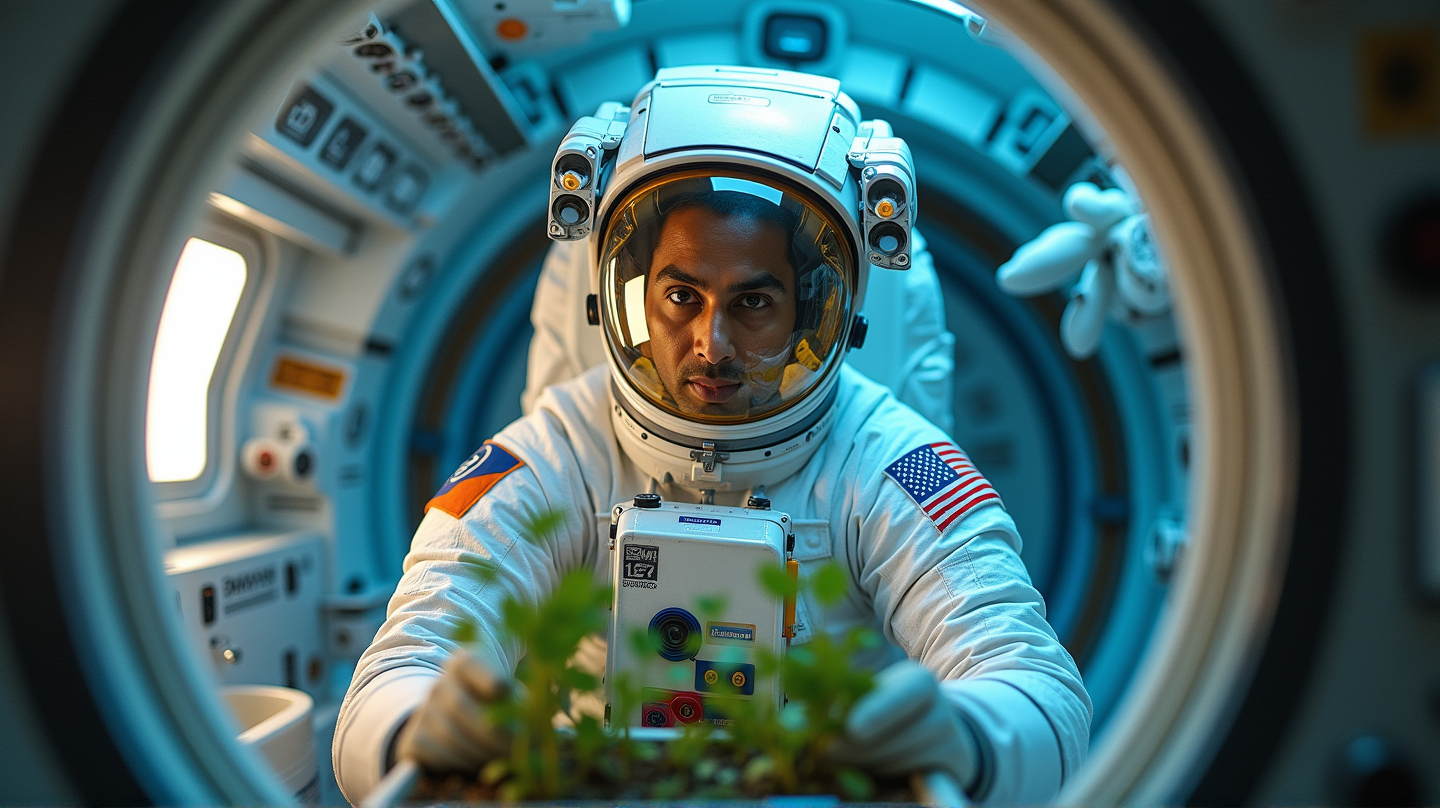Shubhanshu Shukla's Stellar Mission: Growing Crops to Exploring Tardigrades on ISS
Discover the groundbreaking experiments led by Shubhanshu Shukla aboard the ISS, including crop cultivation, studying bacteria and more.

A Landmark Journey: Shubhanshu Shukla’s ISS Adventure
In a few short weeks, Shubhanshu Shukla, an aspiring scientist with an eye toward the stars, will embark on his maiden voyage to the International Space Station (ISS) as part of Axiom Space’s Ax4 mission. Departing in May, this expedition is a fusion of international cooperation and scientific innovation, forming a bridge between India’s ISRO and NASA. The journey promises not only the thrilling experience of space travel but also the execution of 60 research experiments with contributions from 31 countries worldwide.
Exploring the Human Mind: The Microgravity Experiment
One key experiment focuses on the effects of microgravity on the human eye using modern electronic displays. With tasks designed to explore eye movements and stress levels in the weightlessness of space, this study could pave the way for futuristic designs, making spacecraft technology smart and intuitive. The researchers hope to provide insight into the biosensory impacts of extended space travel on human physiology.
Microalgae: The Future Food Source?
Not to be overlooked is the groundbreaking research on microalgae. These tiny organisms are more than mere souvenirs from Earth’s shorelines; they’re potential saviors in sustaining life on long-duration space missions. This study, which partners with ESA, examines genetic and metabolic changes in microgravity, aiming to integrate microalgae into shipboard life-support systems, offering sustainable nourishment and oxygen supply.
Muscle Regeneration and Salad Seeds: A Growth Beyond Earth
The ISS team, featuring Shukla, will delve into muscle science by studying regeneration in microgravity. Insights gained could counter muscle atrophy—a persistent hurdle in space. Simultaneously, ISRO’s vegetable whisperings continue with crop germination research—a vital step towards securing a stable food source off-planet, facilitating astronaut nutrition and continuing India’s space-grown salad saga.
According to Mashable India, Shukla’s engagement in these experiments plays an instrumental role in the deeper understanding of these phenomena.
Tardigrades: Masters of Existential Resilience
Tardigrades, tiny creatures renowned for their hardiness, are the focus of another significant study. Their ability to survive harsh conditions inspires scientists to unlock biological secrets with applications here on Earth. This exploration could also hold the key to developing robust biotechnologies, ensuring that life in concept could very well be life in practice, potentially surviving the stark expanse of space.
Astrophysical horizons broaden with every successful experiment, and Shukla’s mission might be the spark that breeds life beyond our terrestrial confines. As his celestial garden prepares to sprout, so too does our hope for future generations in space exploration.

